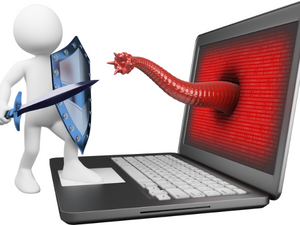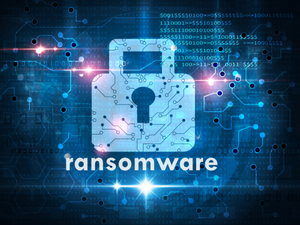 A new malware campaign Faceb00k and YouTube is making the news. The S1deload Stealer is able to take over social media accounts and then mine cryptocurrency for spreading itself. Find out what this malware could do for your company.
A new malware campaign Faceb00k and YouTube is making the news. The S1deload Stealer is able to take over social media accounts and then mine cryptocurrency for spreading itself. Find out what this malware could do for your company.
How Malware Installs Itself
The S1deload Stealer is hidden in photo files with adult themes. The attackers use social media.
Engineering will post these links in Facebook comments.
When someone downloads the files, a signed executable file will appear. This file contains the malicious DLL, the payload, and a valid Western Digital signature.
Users may not know they have malware on their computers. Real images can be used to reduce suspicion.
What happens after installation?
The hackers command and control server informs S1deload Stealer about the installation. It can run many components. The headless Chrome browser is one of these components. It works in the background without the user's knowledge. This is a popular method to increase YouTube and Facebook views.
It can also access credentials and passwords saved in the browser by using a stealer program. It can also access cookie encryption or exfiltration. This allows the attacker to make additional comments on social media using these credentials, thus expanding its reach.
S1deload Stealer also uses the BEAM cryptojacker, which allows cryptomining. Mining BEAM can also give attackers a financial advantage.
Official Suggestions
Bitdefender has reported the new malware. Bitdefender claims this new malware is now accessible to all users. Never click on an EXE from an unknown source. It is crucial to be aware of any security alerts your computer might send.
Conclusion - What Business Owners Can Learn
S1deload Stealer is a recent example malware that targets both businesses and consumers. Businesses are prime targets because they store credit card information. Businesses must ensure they protect their customers as well as their businesses by monitoring for unexpected purchases and cancelling any cards that are not in use. They should also educate their employees on security best practices and implement security precautions within their systems.
Ransomware Attack on Dole
Ransomware is something that businesses cannot afford to ignore. Ransomware is a type of cyberattack that prevents users from accessing their systems until the ransom is paid. Ransomware attacks against Dole Food Company are a warning sign.
Dole reported a ransomware-related cybersecurity issue on February 22. Dole stated that the ransomware attack did not have an impact on operations. However, it isn't clear when or how it happened. Dole claims that the disruption was worse than Dole stated.
Dole sent a memo to retailers on February 10 stating that it had to shut down all North American systems after the cyberattack. Dole closed down all production plants and suspended all shipping that day. One Texas grocery store claims that the attack caused a shortage in prepackaged salads.
Ransomware attacks could affect businesses
 Ransomware attacks pose a grave threat to businesses. Ransomware victims are refusing to pay ransom. Chainalysis, a blockchain data firm, reported that ransomware organizations made less profit in 2022. Attackers received $457 million in 2022, as opposed to $766 million in 2021.
Ransomware attacks pose a grave threat to businesses. Ransomware victims are refusing to pay ransom. Chainalysis, a blockchain data firm, reported that ransomware organizations made less profit in 2022. Attackers received $457 million in 2022, as opposed to $766 million in 2021.
Ransomware attacks can lead to serious financial problems and exceed monetary demands.
1. Productivity loss
Ransomware locks employees out of systems. They are unable to do their jobs, which can lead to revenue loss and delays can lead to revenue loss. Slower operations can also damage a company's image. This can take years to repair.
2. Sensitive data lost
Hackers have the ability to steal sensitive information, and then use it to steal identities or sell it on dark web. This is called "hacker extortion". Businesses that deal with sensitive data are particularly vulnerable. Financial and health services. Protecting customer information is a must for companies. Businesses could face expensive legal issues if they are harmed by a data breach. Companies could be held accountable if they fail to adhere to data privacy laws.
What can businesses do in order to prevent ransomware attacks?
Companies can take steps in order to stay ahead of possible threats. These are just a few:
* Take strong cybersecurity precautions
Every business owner should invest in antivirus software, firewalls, and intrusion detection system upgrade. Multi-factor authentication should be used for all systems. Companies should restrict access to sensitive data.
* Create a Response Plan
For cyberattacks, companies must have a plan. This plan should include who you should call, what actions to take, and how to recover from an attack.
* Educate Employees
Employees should receive regular training on cybersecurity best practices. Employees should be able to identify and avoid criminal tactics like phishing scams.
Dole ransomware attacks are a prime example of cybercrime. By being proactive and alert, companies can protect their most sensitive data. Be proactive and call Integrated Technology Systems today.
Integrated Technology Systems
6 East 45th Street, Suite 400
New York, NY 10017
212-750-5420
https://www.itsnyc.com



